The Jamestown Tribe’s appetite for converting tax-paying properties into non-tax-paying trust land shows no signs of easing as a property valued at $1.1 million is poised to fall off the County’s tax rolls. The land and buildings, owned by JKT Gaming Inc., appear to be a maintenance facility for the Tribe’s nearby golf course.
The warranty deed states, “United States of America in Trust for Jamestown S’Klallam Tribe,” and it was signed in June by 7 Cedars Executive Director Jerry Allen and Corporate Secretary Clifford Prince.
This year will likely be the last that the maintenance shed property contributes to supporting essential services through tax payments to this economically depressed county. Assuming property assessments stay the same, the Jamestown Tribe’s decision to convert this into trust land will annually defund $5,000 from schools, $1,600 from fire and emergency response, and $300 from the library. When the recently passed levy lid lift kicks in, and property owners start paying double the amount to fund the ailing hospital, this tribal property will likely contribute nothing.
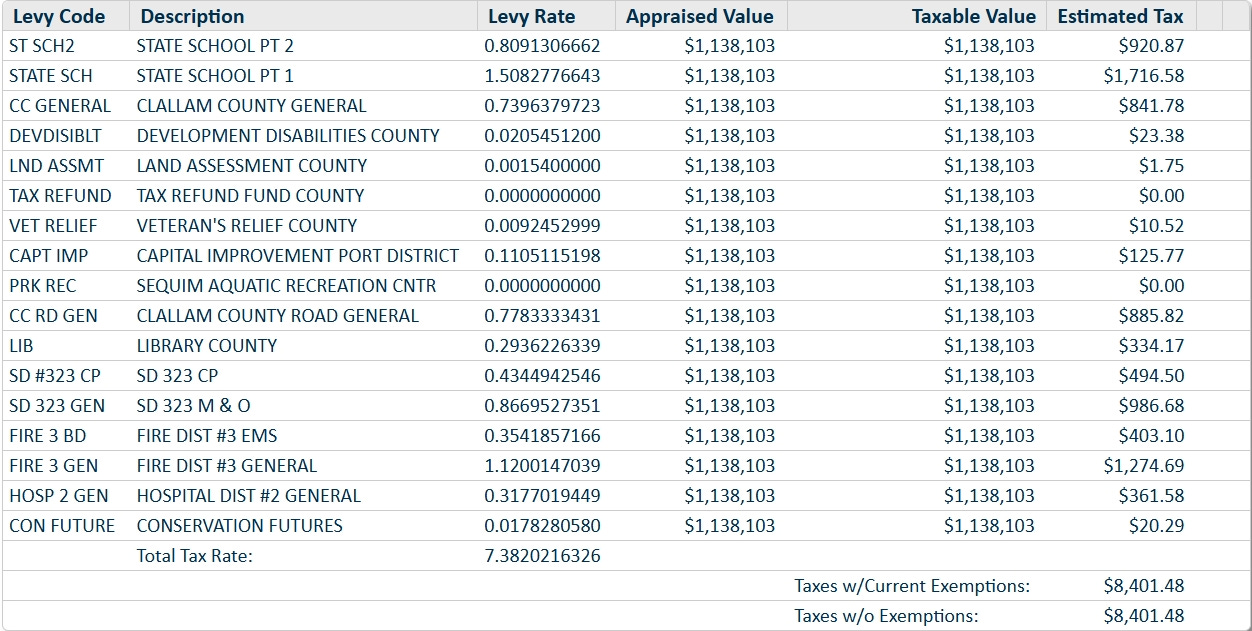
Tribal trust land conversion increasingly shifts the burden of funding local government onto those who must continue paying property tax. If you own property in the county or rent from someone who does, you shoulder the increasing responsibility of funding essential services with every parcel that is converted into tribal trust land, and the County knows it. County Commissioner Mark Ozias said in an email, “It is certainly true that when a parcel is exempted from paying property taxes, that burden shifts to other taxpayers.”
Agency’s track record
One local agency dependent partially on property tax revenue is Peninsula Behavioral Health (PBH), which provides mental health, substance abuse, and homelessness services and builds and manages permanent supportive housing. On Tuesday, the three county commissioners will decide whether to grant PBH’s request to fund the construction of a new PBH facility.
Last week, Sequim resident Eric Fehrmann emailed the commissioners, saying that he worried this housing project could go awry despite its good intentions. Fehrmann was raised in subsidized housing until age five when his parents moved to a rental and eventually bought a home. “I am fully aware of the need for this type of housing. I bring up the need for a fully formulated plan to ensure that this housing be a step up, not a permanent fix,” said Fehrmann.
Commissioner Ozias, the only commissioner to respond to Fehrmann’s email, wrote, “Peninsula Behavioral Health has proven their ability to shepherd and manage this kind of project effectively, and I would like to think that as a local non-profit organization with a local Board of Directors providing oversight, the community will have some assurance of responsive oversight.”
The shepherding and management of PBH’s last big housing project, Dawn View Court, was plagued with problems. According to an article from Peninsula Daily News, the conversion of a 25-unit motel in Port Angeles into housing for people with chronic mental health crises and homelessness was initially budgeted for $3.5 million. Vandals broke windows, and unexpected rot and asbestos were discovered in the 86-year-old motel. However, costs jumped drastically when, during a cold spell, water was not shut off, causing pipes to burst. Newly installed drywall and insulation had to be removed from 10 flooded units before new copper piping was installed, which thieves stole. By the time Dawn View Court opened last year, the cost had ballooned by 37% to $4.8 million.
New supportive housing facility
“Renovating an old hotel is not the right thing to do,” said Peninsula Behavior Health CEO Wendy Sisk during a May 14th presentation to the County’s Behavioral Health Advisory Board. “We want to do it again, and we want to do it right,” she said while discussing plans to build a 36-unit facility in Port Angeles on Second and Oak Streets.
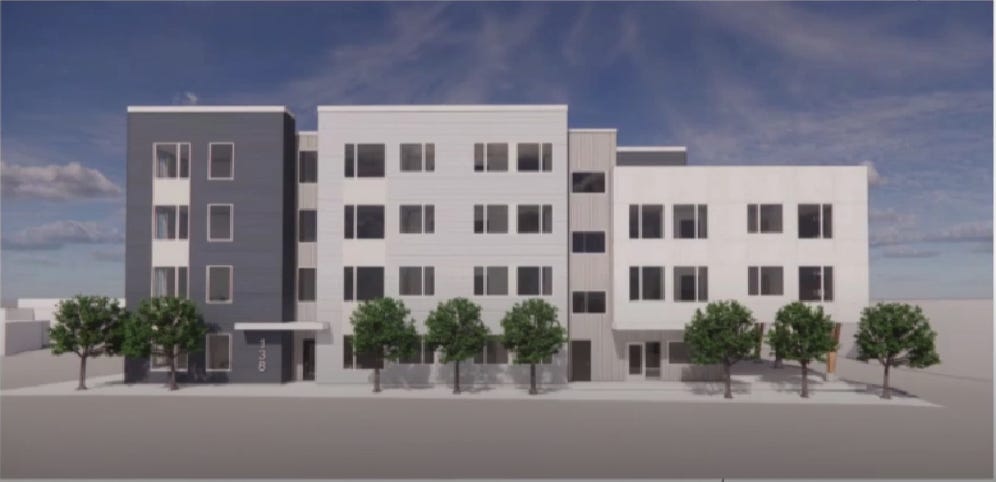
Like Dawn View Court, “Northview” will be permanent supportive housing. “With permanent supportive housing you basically can stay in that housing until such a time as your income exceeds the requirements,” Sisk explained.
The definition of homeless, in this case, means living somewhere you aren’t supposed to. “If I’m crashing with a friend, that still qualifies,” Sisk said during her presentation. “Or if my parents have said, ‘You know what? You just need to move on, and you can’t be here anymore,’ That individual would be eligible.”
The smallest apartments will be nearly double the size of a Dawn View Court unit, ranging from 400-square-foot studios to 650-square-foot two-bedrooms. Units on the north side will have views of the Strait, and those on the south will have views of the Olympics.
The 4th floor will feature a community room that opens to a rooftop terrace, and a 34-panel solar array will be installed to meet energy code. Air conditioning will be installed at $15,000 per apartment (over half a million dollars for all 36 units), and heat pump water heaters will be chosen over the traditional, cheaper variety. The ground level will feature covered parking, a charging station for electric vehicles, dog walking areas, and a smoking shelter — Sisk said that not having a smoking shelter is a “deal-breaker” for many seeking housing.
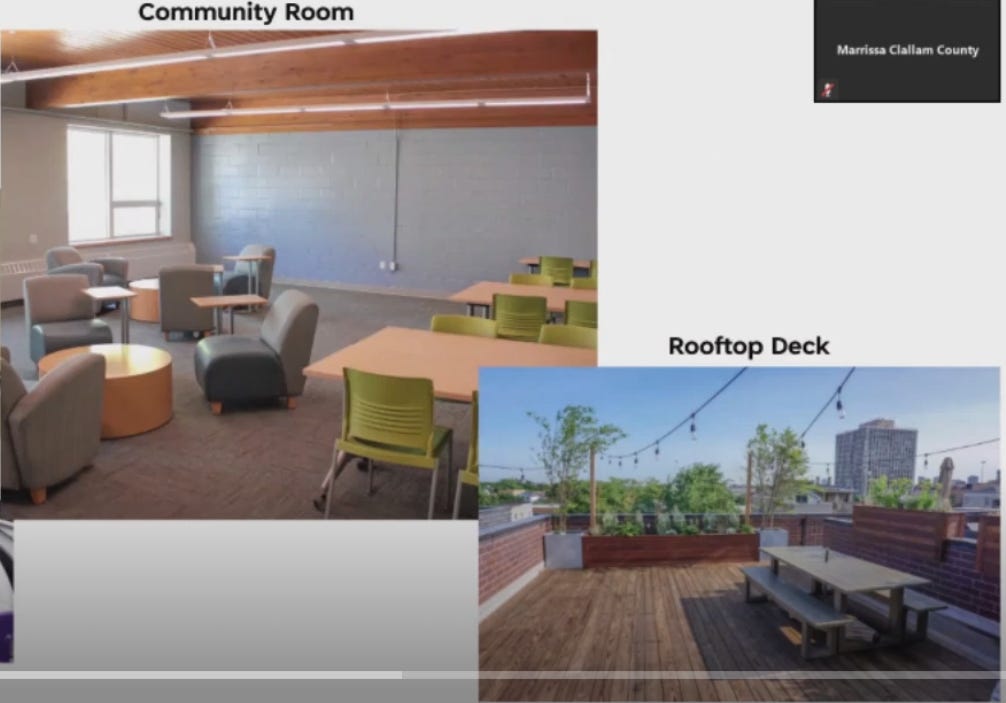
“One of the things that my staff told me really loud and clear,” explained Sisk, “Is if we’re going to do more housing, it needs to be pet-friendly because we have people who will not come out of their vehicles because they can’t take their dog.” Units will feature extra interior insulation to muffle sounds for privacy, and the laundry room will feature a dog-washing station.
“The architect asked, ‘Do you want the smallest window possible to save money?’ and we said ‘no.’ If I live somewhere, I want to be able to see outside, not through the smallest window required,” said Sisk about the project that could start before the end of this year and be completed by early 2026.
Each unit will have a dishwasher because, according to Sisk, they want to “make it as easy as possible for people to be successful.”
Key cards will make cutting new keys obsolete. Doors at Dawn View Court have keypad entries with secret codes, but these have been problematic since residents can give their secret codes to friends who provide the code to others or access the units without permission.
How PBH measures success
“We’ve had a lot of success,” said Sisk about Dawn View Court’s housing model. “We have had zero turnover in our permanent units in a full year.” Success for PBH means that in the past twelve months, no one moved out of Dawn View Court’s 25 units, and no one was evicted.
Regarding which residents would be recruited to live at Northview, Sisk said, “We would like to try to target some of our folks that we know are at high risk of recidivism of the jail because they are in and out of jail without a place to land and not having a place to be, and having chronic health conditions including behavioral health conditions, is not a recipe for long life or happiness or success.”
Sisk says the neighborhood near Northview shouldn’t be worried — Dawn View Court had only two EMS responses in the past year, both for diabetic emergencies. However, there was an incident on the morning of the presentation. “One [response from law enforcement] was this morning because somebody came and left a shopping cart behind the building that had needles in it… The person left it there because they knew they weren’t allowed to take that paraphernalia into Dawn View.”
“Our housing is ‘dry,” answered Sisk to someone who asked if residents need to be sober while living at either facility. Sisk clarified that the new facility won’t be exclusively dry. “So people have to be working their treatment program, but we have people who have relapses occasionally, and we just wrap services and support around them.”
$4 million in funding from County
PBH started considering a new facility because of a generous $750,000 private donation which is less than 6% of the estimated $12.75 million total cost. Clallam County Taxpayers have already chipped in $2 million, and this Tuesday, commissioners will vote on the Behavioral Health Advisory Board’s recommendation to approve an additional $2 million in funding.
Last year, the county commissioners faced a $2 million budgeting shortfall in 2024 — a first in Commissioner Ozias’ eight years of public servitude. This week, nearly 200 employees worked their final hour at the McKinley Paper Mill, and the disappearance of those jobs is forecasted to have a ripple effect throughout the County that will cause an estimated $1.1 million in lost tax revenue.
Dawn View Court’s 240-square-foot units were initially planned to cost $140,000 each before swelling to an average cost of $192,000 per unit. Three months before construction, Northview has an average price of $354,166 per apartment.
Faced with an uncertain local economy, knowing that property owners shoulder an increasing tax burden as acreage is converted into tribal trust land, will the commissioners decide to fund permanent supportive housing with dishwashers, air conditioning, a rooftop terrace, and a dog washing station this Tuesday?
Commissioners supportive
“Let me say, and I’ve said it many times, I’m so thankful to your board for stepping up and risking the money,” Commissioner Randy Johnson told Wendy Sisk last week during her presentation.
Commissioner Mark Ozias praised county administrator Todd Mielke for realizing that the Behavioral Health Tax (collected by the County through the sales tax) could be used for this housing project. “I really appreciate the advisory board’s creative thinking and work on this,” said Ozias. “Thank you to Todd for thinking of a connection that could be made and making it.” Ozias says this is an example of being strategic and coordinated with funding.
Commissioner Mike French, who promised to ensure fiscal responsibility during his campaign, is eager. “I’m strongly in support of this. I’m excited to see this moving forward,” he said enthusiastically.
Taxpayers need to prepare if they are expected to fund over $350,000 to house each person who is crashing at a friend’s, needs a place to land between incarcerations, or has been told by their parents, “It’s time to move on.”
In the meantime, a growing number of residents and businesses have decided, “It’s time to move on” to areas with lower taxes and better job opportunities while Clallam County goes to the dogs.




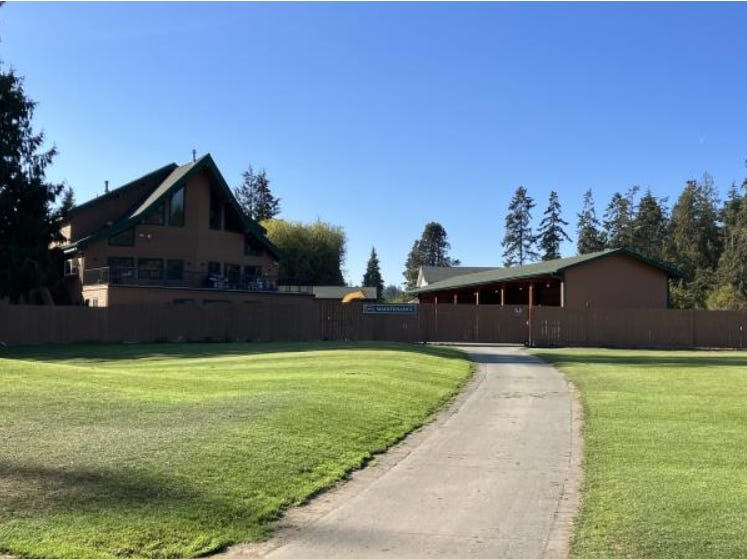

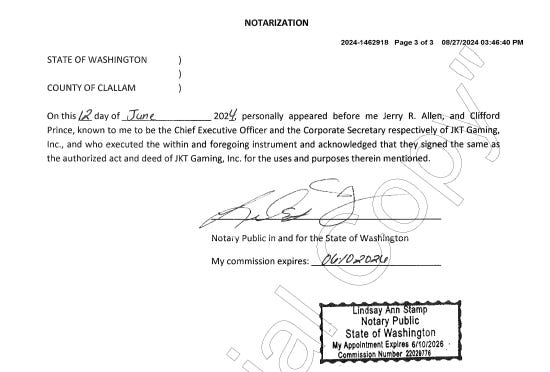
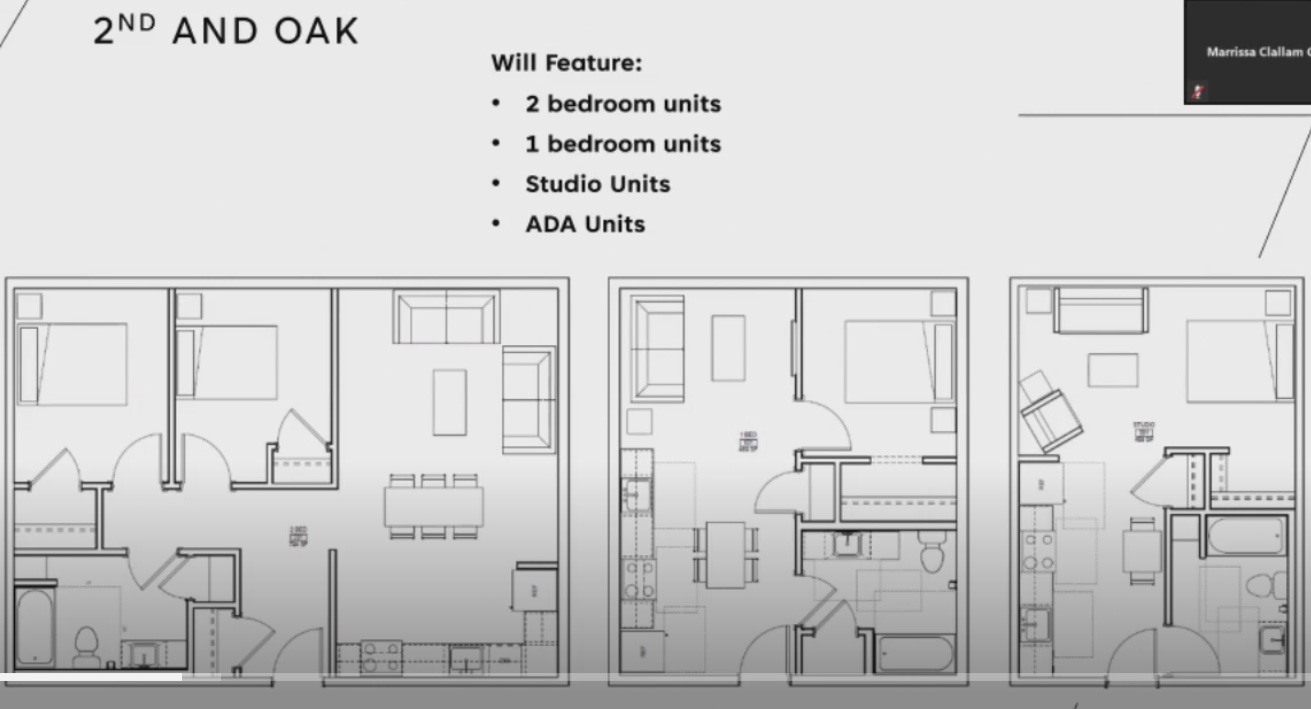
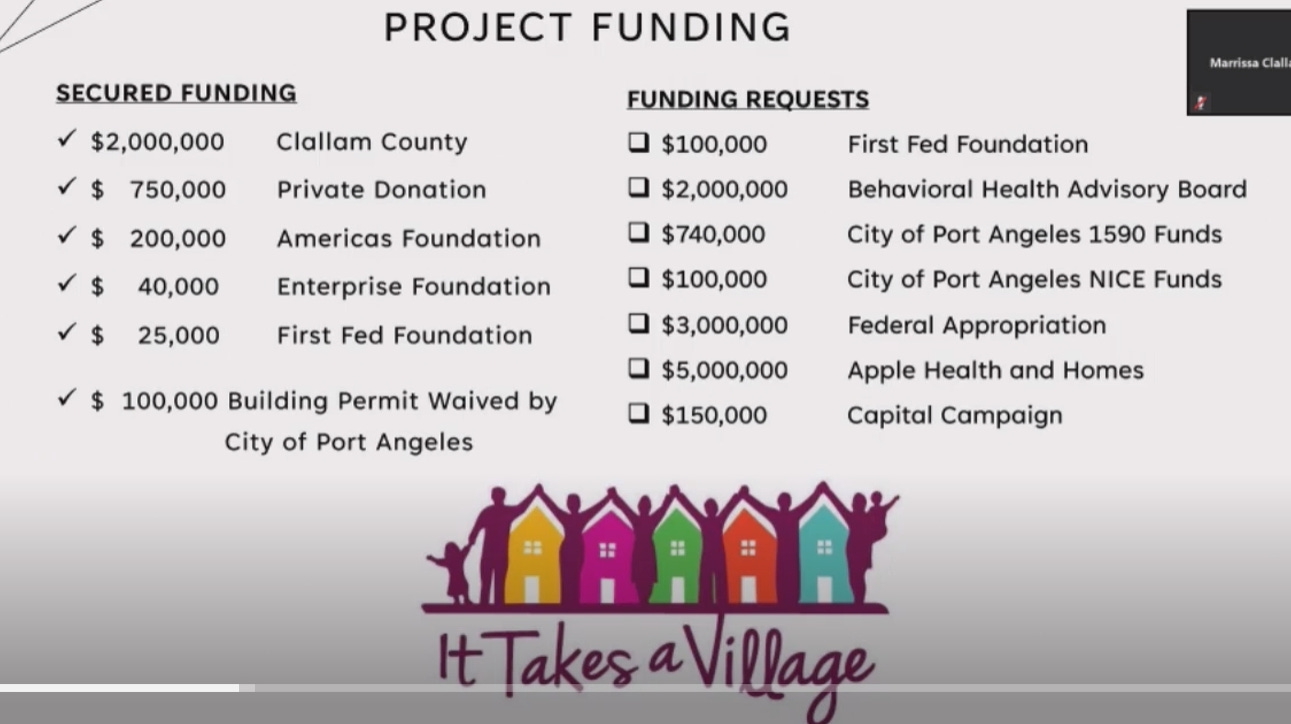

Sorry posted before finishing. But the rehab that sobered him up was the one that he initiated. The court ordered rehab were worthless. He wasn't straight for more than a week. That's just his story. Others may have different results. My point being there doesn't seem to be a surefire path to being productive and whole coming out of addiction. But if services weren't available I don't think my son would've made it. It was beyond what two loving middle class parents could provide financially and emotionally. This Taj Mahal of a new center seems excessive. I'm more in line with what the Salvation Army or Catholic Services provides. Just the basics. A lot of these people ( I suspect over half) will never make it to sobriety or self suffiency. I don't have the answers. Just the story. Many of the homeless are mentally ill and belong in a State Institution. But our political leaders abandoned that approach many decades ago. I suspect its cheaper to fund Western State Hospital than the billions we've shelled out over the failed experiment of toleration and decriminalization. So I have no solid conclusions. But common sense with fiscal sense needs to prevail. Exactly what that looks like I am unsure. But I don't believe we are anywhere close.
Respectfully
Lawrence
Thanks Jeff. This sure sounds like the same mistakes made 60 years ago in many large cities. I agree that we need to do something to provide a way up for people to get out of their circumstance. Doing the same thing as in the past is not the answer. Permanent housing is not the answer. Look up Cabrini Greens on you tube.